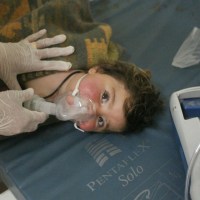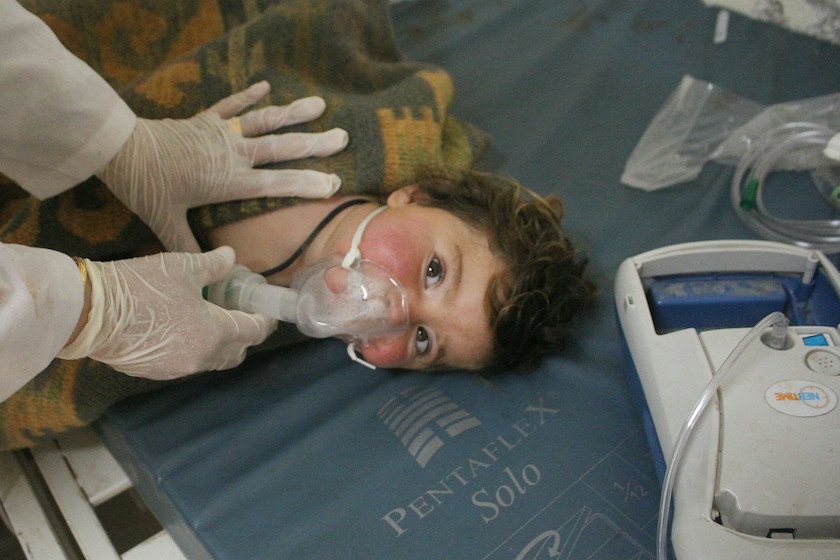Yesterday, news broke about a chemical attack in Syria, in a city near the Turkish border. The world has rightfully responded with heartbreak and outrage.
But while the rest of the world analyzes the attack itself and discusses who-did-what, you’re doing what you do best: taking action, loving people, and meeting as many needs as possible.
Instead of merely reacting to the atrocity, we are responding to the victims. We are launching a holistic, long-term response, because this attack will likely affect the survivors for decades.
In the wake of a chemical attack like this, people have urgent physical needs that go beyond emergency medical care—and you are meeting those needs:
- They need food to sustain them while they recover from injuries, tend to their children, and cope with being displaced by the attack.
- They need supplies to clean up the chemical residue and safely remove the toxins from their homes.
- The many refugees in the area desperately need food and help meeting their basic needs. The medical expenses they incur from this attack and the fact that people can’t work while they care for injured family members will make it even more difficult for them to make ends meet.
The world is paying attention right now. But this is not a short-term tragedy. The suffering will not end when the news cycle moves on. The effects of the chemical attack will be felt long-term.

Men and women who were supporting their families are now unable to do so. Parents will spend weeks caring for children who were injured in these attacks. Many children may suffer the effects of these chemical agents for years to come.
When we started Preemptive Love nearly a decade ago, our very first work dealt with the aftermath of a similar chemical attack in Iraq in 1988. Years later, when the children who survived that attack grew up and had children of their own, many of their babies were born with congenital heart defects—a likely result of their parents’ exposure to toxic nerve agents, like the ones that may have been used in Syria.
Depending on what kind of chemical was used on Tuesday, it is possible that those who survive will feel the impacts of yesterday’s events for the rest of their lives.
That is why we need a holistic response. One that responds to immediate needs while keeping the mid- and long-term needs in mind, too. There is no quick-fix here.
Good thing you’re not “quick-fix” kind of people.
Thanks to your generous initial response, we are getting help to people as quickly as possible—food, hygiene kits, educational resources on how to protect yourself from, and safely clean up after, a chemical attack. We’re coordinating with others to make sure we meet the most urgent needs.
But we need more of your support to ensure a comprehensive response.
We are deeply grateful for every single donor and every one-time gift, but the absolute best way to help is to become a monthly sponsor. Our sponsors’ steady generosity allows us to respond to emergencies as they arise and enables us to plan holistic, long-term solutions like this one.
We are in this for the long haul. Stay with us. Stay with these people. Keep showing up next week, and next month, and next year when the effects of these chemicals are still visible in their lives and the lives of their children.
Be the ones who stay until the healing is done.
Respond to this heartbreaking chemical attack—please sponsor or donate today.


